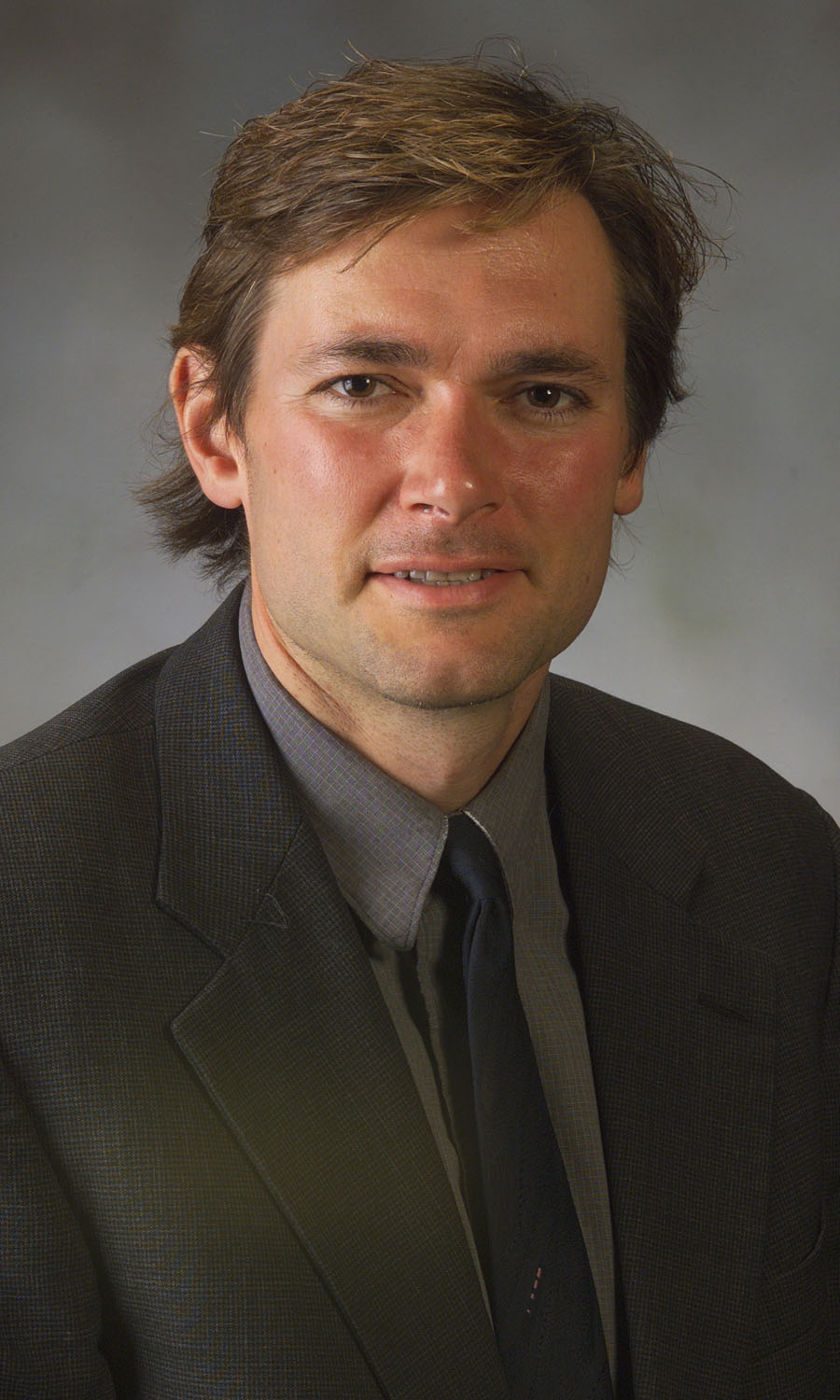Professor highlights failing U.S. water infrastructure in national press briefing

A Virginia Tech professor with the College of Engineering at Virginia Tech and renowned expert on water infrastructure said America is failing in its quest to provide safe drinking water in high quality and high quantity.
Marc Edwards, the Charles P. Lunsford Professor with the Virginia Tech Department of Civil and Environmental Engineering, along with other scientists from the American Chemical Society (ACS) held a press briefing Jan. 27 in Washington D.C., to speak out on water quality and safety. The event was deigned to highlight the ACS’s newly released book, “Final Report on Global Challenges/Chemistry Solutions.”
Edwards said many challenges face U.S. water system managers and gave two examples. Old water pipes are failing at alarming rates, with some cities losing 15 percent to 40 percent of its treated water from the plant to customers. Leaks and break in the pipes are the cause of the losses. “That’s unacceptable,” he said. The breaks also pose the danger of contaminants seeping into the water supply during low-pressure periods.
The second problem comes from well-intentioned and necessary water conservation efforts. Edwards said that technologies such as reduced-flush toilets and low-flow showerheads are allowing water to remain in household pipes longer, and therefore allowing it to become more susceptible to bacteria growth. “So just like milk can go bad if it stays around too long, so too can potable water go bad, and we are discovering this is a downside of water conservation,” he said. The bacteria problem can be exacerbated when customers lower their water heater temperatures in an effort to save gas or electricity.
Edwards said water system operators are responsible for the water until it reaches the customer’s property line. After that point, it’s up to the customer to help ensure that his or her water supply is as safe as possible. He called water safety a “joint effort.” People in the United States generally enjoy tap water of “very good” overall quality, Edwards added.
The briefing came on the same day that The Washington Post reported on a major study, co-headed by Edwards, that details high lead levels in the blood of young children in the D.C. metro area. High amounts of lead substances started appearing in city water after the metro’s water department, in a well-intentioned act, switched to chloramines from chlorine as a disinfectant, Edwards said. The chloramines allowed lead that had built-up in the pipes to become loose and flow into the water supply. The new study contradicts earlier reports by District of Columbia officials that stated lead levels in the city’s water supply had not caused identifiable harm. Edwards said the threat was indeed “significant and knowable.” The study soon will be published in the trade journal Environmental Science & Technology.
Additional participants at the briefing included: Thomas Lane, president of the ACS; Margaret Cavanaugh, a moderator with National Science Foundation; William Ball of Johns Hopkins University and Engineers Without Borders; and Charles Haas of Drexel University. Speakers said in cities such as Philadelphia, some water pipes are 125 years old, 50 years past their life cycle. Additionally, many city water system managers do not even know where millions of pipe systems are located between treatment plants and homes.
Hard copies of the ACS report are available from the ACS Office of Public Affairs. An easy-to-read digital version can be accessed online. The webcast of the event is also available online.
Winner of the National Science Foundation Presidential Faculty Fellowship, Edwards was dubbed the “Plumbing Professor” by Time magazine for his internationally recognized expertise on drinking water, concentrates in environmental and water resources engineering. Recently he teamed with another College of Engineering faculty member to establish the Sustainable Water Infrastructure Management (SWIM) research institute in Blacksburg, Va. Edwards completed his master’s degree and Ph.D. in environmental engineering at the University of Washington and earned his bachelor’s degree in bio-physics from State University of New York at Buffalo.
The world’s largest scientific society, the American Chemical Society is a nonprofit organization chartered by the U.S. Congress and a global leader in providing access to chemistry-related research through its multiple databases, peer-reviewed journals and scientific conferences. Its main offices are in Washington D.C., and Columbus, Ohio.




